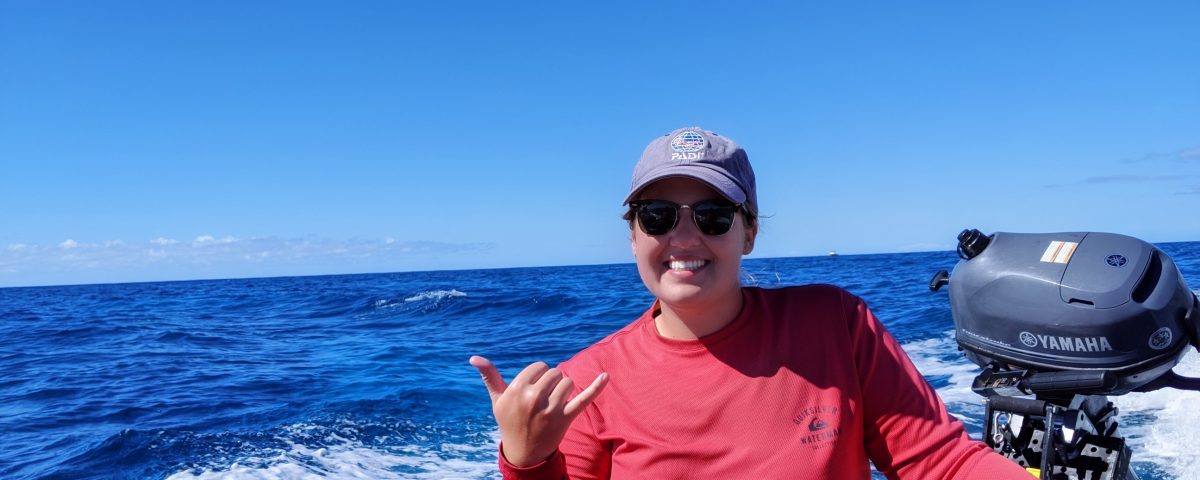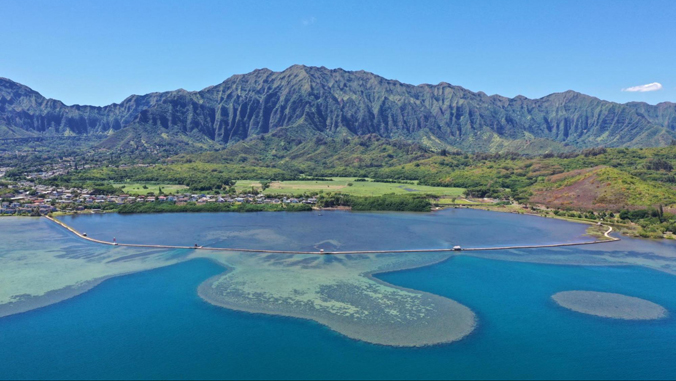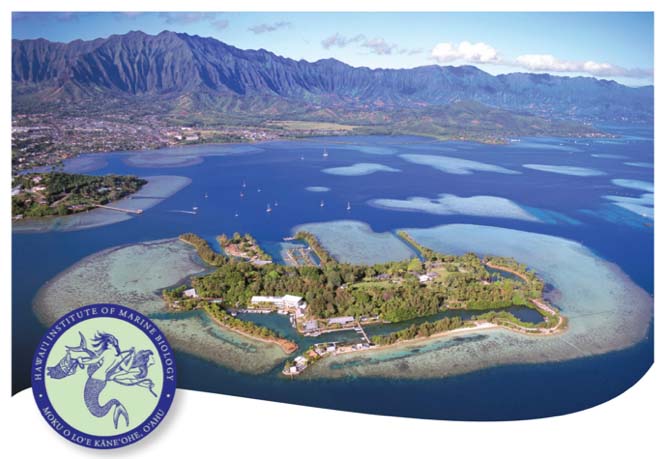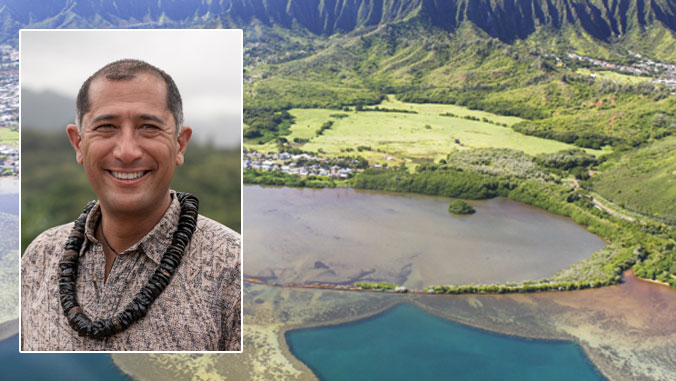Lauren Arnold, HIMB PhD Student and Member of the Pelagic Fish Lab, Awarded the GSO Merit Based Award for Mentorship for Spring 2021

Indigenous Practices Could Assist Endangered Waterbird Recovery
May 22, 2021
Cracking The Code of Coral Reef Resilience
June 10, 2021Lauren Arnold, HIMB PhD Student and Member of the Pelagic Fish Lab, Awarded the GSO Merit Based Award for Mentorship for Spring 2021

Photo Credit: Lauren Arnold
Congratulations Lauren on receiving this award. Details about the award and her statement are below.
The Graduate Student Organization recognizes the importance of encouraging graduate student mentorship of other students at the University of Hawaiʻi System in a way that fosters a positive academic climate and promotes professional development. For this award, mentorship is defined as a professional relationship where an experienced person (the mentor) assists another student (the mentee) to develop specific skills and knowledge that will enhance the less-experienced person’s professional and personal growth. For the purposes of this award, examples of mentorship include but are not limited to, mentoring graduate or undergraduate students at the University of Hawaiʻi; providing career counseling; and co-authoring or presenting research with mentees. Graduate student mentors should maintain the highest degree of professional conduct; provide constructive critique; and help to promote the intellectual growth and critical thinking of mentees. Working with mentees from underrepresented, first-generation, or marginalized groups is a priority with attention paid to developing skills and support networks for overcoming institutional barriers they may face in the field.
Throughout my undergraduate career, I lacked a mentor that provided seasoned advice from many years of academic training. Now, while I cannot provide all the insights to students and interns that a senior-level advisor would, graduate students, like myself, are uniquely positioned to better relate to undergraduates and shine a light on the steppingstones of academia. As a mentor, I treat my undergraduates with respect and relate to them by cultivating an open and fun environment welcoming them to bring their authentic selves to science. For the past two years as the Shark Lab Intern Program Director, I’ve fostered a productive, safe, and friendly environment with our interns by organizing multiple lab clean-ups, teaching them husbandry skills, and training for fieldwork with a hands-on approach. Many of our interns apply for research funding through UROP (Undergraduate Research Opportunities Program), to which I assist in the application and data collection processes. For one of our students, I helped her through each draft of the proposal, getting approvals from the lab PIs, and have more recently been operating the boat and helping to collect samples for her study. Through my connection with her, I strive to be an example and a source of support. I strongly advocate for women in STEM and specifically women in shark research by giving them opportunities to break the field’s mold. Like many science fields, shark research is male-dominated. I want to empower all our female interns to make this field more equitable and aspire to support others to achieve their personal and professional goals.




